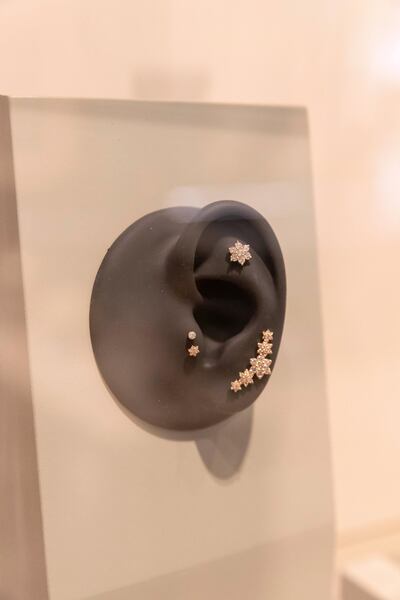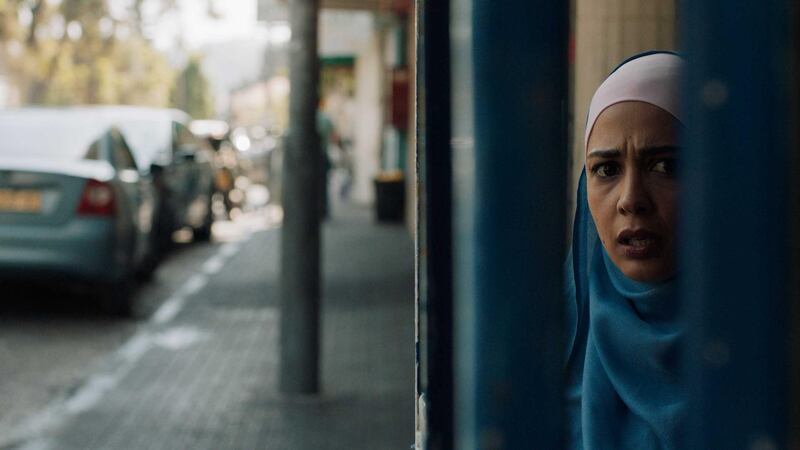Palestinian director Muayad Alayan's second film, The Reports on Sarah and Saleem has won a slew of international awards including the Hubert Bals Fund Audience Award at the Rotterdam Film Festival, as well as the Grand Jury Prize at the Seattle Film Festival and in Durban, Best Film and Best Actress for famed Palestinian actress Maisa Abd Elhadi.
The judges and audiences at these film festivals have been impressed by the taut thriller that uses the concern that an affair between a Jewish woman and an Arab man will be made public, causing more tension in the socio-politically divided Jerusalem.
Like so many great movies, the story is born from a seed of truth and also the director’s personal observations. “In the aftermath of an Israeli invasion of the West Bank many young men and women in East Jerusalem were arrested,” says Alayan. “The arrests were seemingly out of the blue until, later, it was revealed that the Israelis had been using material confiscated from the Palestinian Authority.”
The Palestinian Authority had been keeping information on citizens and this was now being used by Israelis to target citizens. There were some major problems with this information. “A lot of it was fake reporting,” continues Alayan. “It was revenge reporting. People who had a problem with their neighbour would invent an allegation. Many people got arrested because among these documents was information on men who had been arrested previously because they had been caught with Israeli women. Some of these cases went back to the ’90s.”
As part of this fallout, Alayan witnessed the arrest of some of his colleagues who were working alongside him in a cafe in Jerusalem. “I often mention that because in Jerusalem as a Palestinian the first job you get is likely to be a blue collar role and it would be the first encounter you had with Israeli citizens beyond the soldiers and military that you would see in the Eastern part of the city.”
The everyday barriers in life
Alayan, alongside his screenwriting partner and brother Rami Musan Alayan, wanted to depict the reality in which Jewish citizens are business-owners and gatekeepers, while he and his fellow Palestinians work for them. Such a dynamic can be seen in the film where the cafe-owner is Sarah (Sivane Kretchner) and the deliveryman is Saleem (Adeeb Safadi).
“In Jerusalem, there are so many barriers that are social, socioeconomic and political, in every aspect of life,” says the director. “There is a separation that you cannot see unless you really live there that you would not feel if you were a tourist walking into a cafe or clothing store.”
When the couple get involved in an altercation in a bar in Bethlehem, which threatens to publicise their relationship, it’s less important that they are both married – her husband David (Ishai Golan) is in the army, and his wife Bisan (Elhadi) is pregnant. What is really concerning is that Sarah is Israeli and Saleem is Arab.
“If such an infidelity took place in Mexico, there would have been a social crisis between the two families, but I don’t think it would turn into such a big state issue and a police issue,” Alayan says.
The filmmaking crew also experienced this imbalance of power during the shoot in the summer of 2017. “We were arrested on one of the shooting days in Bethlehem,” states Alayan. “We had all the shooting permits from the Palestinian police and they had even blocked roads for us. However, under the Oslo Accords if the Israeli army wants to make an arrest within the territory all they need to do is inform the Palestinian police and they have to evacuate.”

“Twelve or 13 Jeeps came rolling in,” recalls the director. “They took me, the art director and the line producer to a nearby military base and kept us there for hours while they did their checks. In the end, they confiscated some of the art props and they told us that even if we are filming inside the Palestinian area we have to let them know.”
It did not come as a complete surprise to Alayan, whose first film, Love, Theft and Other Entanglements, features a petty Arab carjacker stealing a car that has a kidnapped Israeli soldier in the boot.
'I have to share the stories that make up the films'
When it came to planning his second film, he had to approach it like a heist, with different approaches taken depending on whether they were filming in the West Bank or East or West Jerusalem. They scouted the locations numerous times, walking through scenarios of what could possibly go wrong: “We got used to planning around the fact that things might not happen and you have to always find solutions and worry about whether the European crew would be allowed to make it through the airport or whether my brother Rami would be able to bring the camera we hired in LA through airport security.”
Despite all this planning detail, Alayan says, “Sivane was verbally abused a couple of times because they saw an Israeli with an Arab and Maisa was attacked a couple of times because there was this woman wearing a hijab with cameras around.”
Even during the casting of the film, there were multiple aspects in addition to ability that concerned the director. “We wanted the best actors for the roles, but we also wanted actors who in terms of the politics were people who would be okay working for us.”
So for example, Israeli actor Golan, who had a role in Annemarie Jacir's Salt of the Sea runs campaigns protesting against theatres operating in settlement areas. Kretchner had herself been the victim of a protest by the Israeli Ministry of Culture because she starred in the first Hebrew version of My Name is Rachel Corrie, a play about an American activist who was crushed to death by an Israeli military bulldozer. Jerusalem's Khan Theatre was threatened with having its public funding withdrawn for housing the play.
________________
Read more:
Why a large proportion of the Arab world's best filmmakers are women
Mahmoud Ben Mahmoud’s ‘Fatwa’ tackles radicalisation in Tunisia
Yemen's first-ever Oscars submission to release in UAE cinemas
________________
“Kretchner showed me a lot of the hate mail she was receiving because of that play,” says Alayan. “That to me is relevant to what Sarah is going through in the film. I was lucky in the sense that it helped to bring out so many emotions and she could bring that experience of being attacked by your own society and having to make choices because of that.”
So given all the challenges, it’s a wonder that Alayan, who was trained in San Francisco wants to make films in his homeland at all. “I have to share the stories that make up the films, but also the stories that go into the making of the films, because that itself is also a statement, particularly in Palestine.”
The Reports on Sarah and Saleem screens at the Bristol Palestinian Film Festival on Friday






